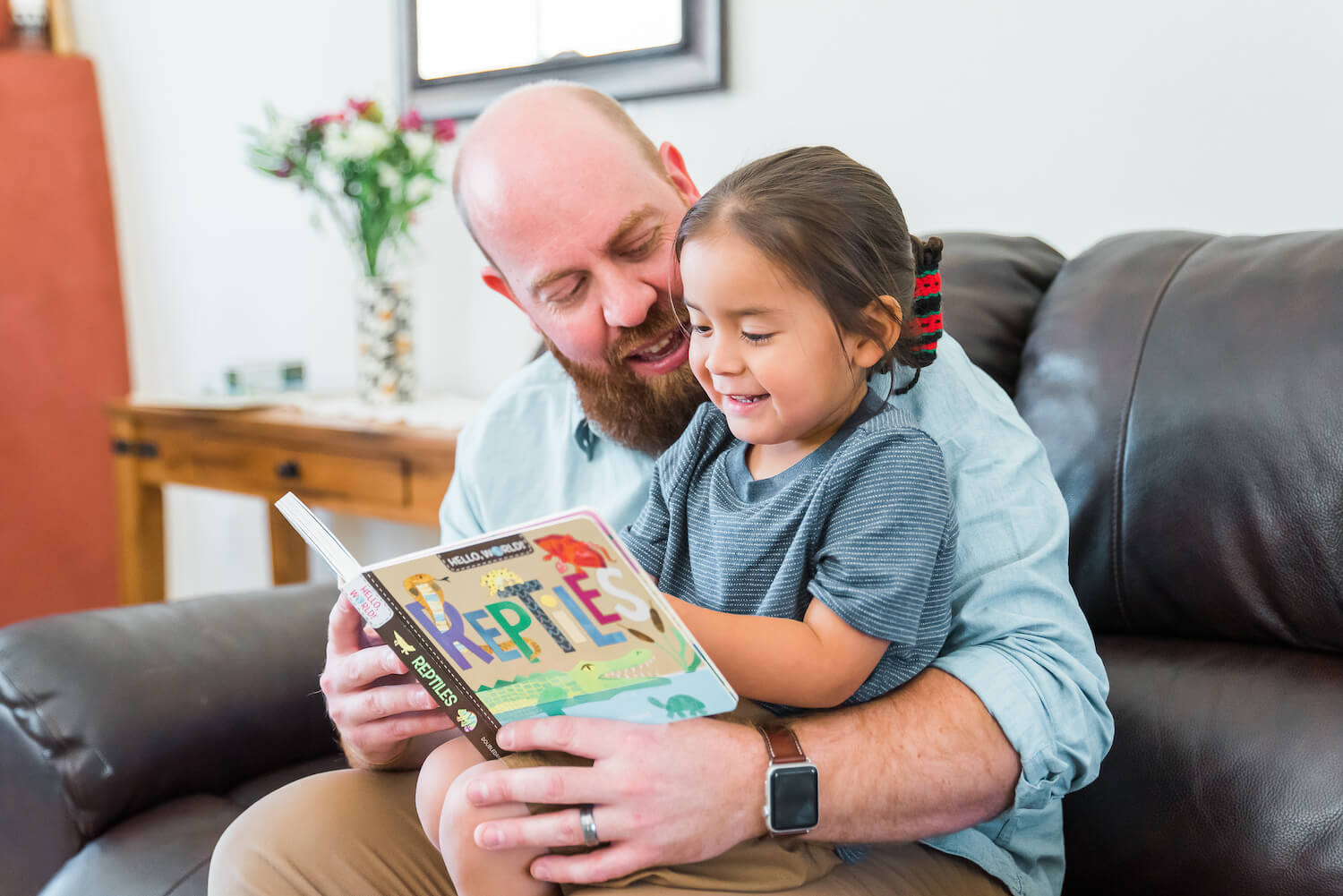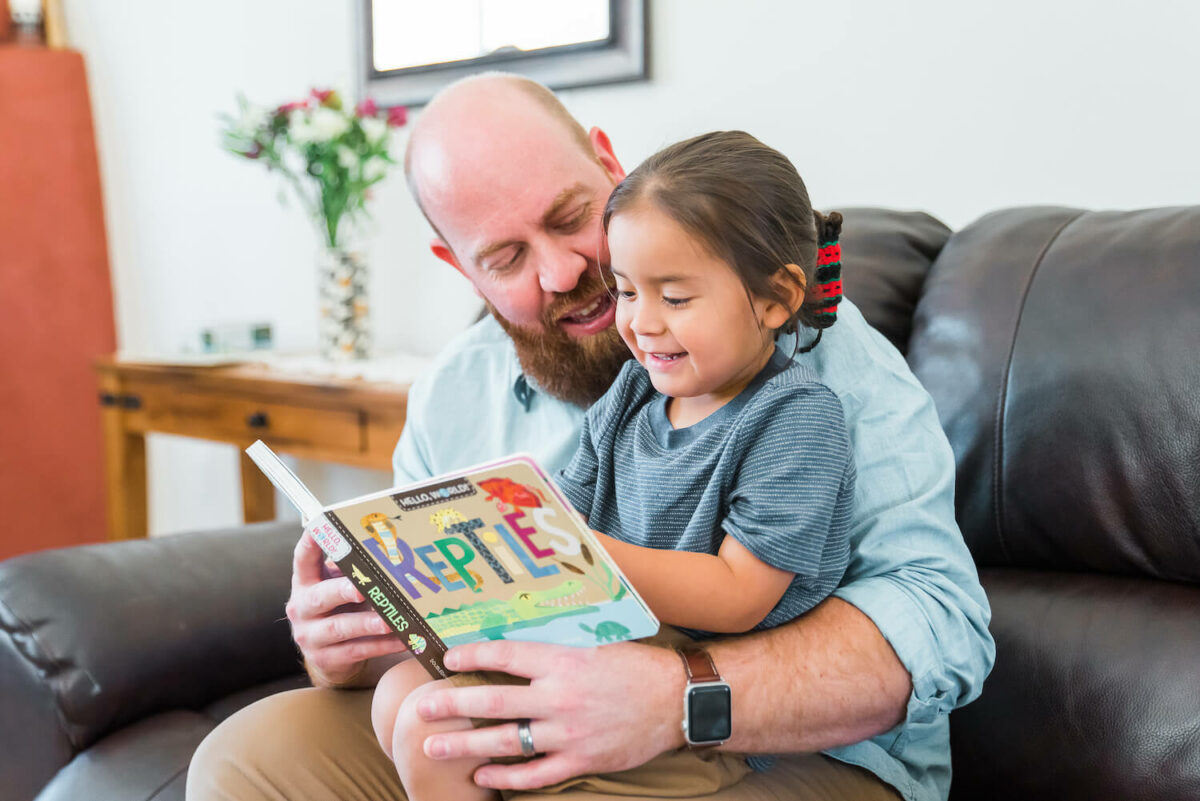
Speech and Social Delays Increased After COVID, and Free Programs Can Help
Things are different for babies and young children who were born into the COVID world. Most of them have crashed a Zoom call at some point, and they know the discomfort of having a testing swab stuck up their noses. These babies and toddlers are also more likely than their pre-COVID counterparts to have delayed speech and delays to their social and emotional development.
Experts across the country have reported that today’s babies and toddlers are talking later, and have less practice with key social skills like how to take turns, play with other children, and build relationships with new people. The increase has been confirmed by multiple studies, and families have noticed it, too.
Luckily, New Mexico has free FIT programs serving every community to help families support their young children’s development. FIT stands for Family Infant Toddler, and is a free program for anyone in New Mexico with a baby or child from birth to age 3. Crysel Replogle is a FIT speech therapist in Deming, and she has tips for families wondering about their child’s development, the impacts of COVID, and what they can do about it.
Why Are We Seeing More Delays?
Children who were born or very young during COVID lockdowns have had fewer opportunities to interact with a variety of people. Crysel noted that even trips to the grocery store can be chances for interactions, and these children had a lot fewer of those chances. “They didn’t get those opportunities to socialize or even necessarily to go to Wal-Mart or to go shopping,” Crysel said. “So I do see families concerned now, and a little bit of a difference in the way that kids react and see strangers.” Fewer social interactions also may have meant that children heard or experienced fewer words, especially if adults in the household were stressed by other aspects of COVID and had less time for play.
Act Early
Crysel said her top advice to families is to act right away if they have concerns about their child’s development. Addressing any issues early helps children catch up faster, which can mean they won’t need special education services later in the K-12 school system. “I definitely want to encourage families to not wait and see,” she said, noting that families sometimes delay seeking out services and hope an issue will resolve with time. “Family members will say, ‘Oh, don’t worry about it, your cousin didn’t talk until he was 3,’ or ‘Don’t worry about it, his daddy didn’t talk until he was four,’ or ‘He’s just stubborn and he’s shy and he doesn’t want to talk.’ That is definitely not the approach we’re taking.”
Free FIT Services
Especially now, with more children experiencing delays, Crysel said caregivers should schedule an evaluation with a local FIT provider. Any family can have a free evaluation by an expert, to see if children’s developmental milestones are on track and whether they qualify for free additional supports. Those supports are individualized to your child’s needs, and could mean that a speech therapist like Crysel comes to your home to support your child’s speech development, or that a physical therapist comes to help with other skills like crawling.
Crysel said families should follow their gut if they have any worries at all about children’s development. “If you have an intuition as a family member or a caregiver, I think it’s important to seek out an evaluation,” she said. “It is a preventive measure, and New Mexico is really unique in that they are invested in early childhood and early childhood development and these services are free for you.”
Not only are FIT services free, but you can schedule them to fit into your family’s needs and routines. Having trouble engaging with other children at the park? Your FIT provider can meet you at the park to work on it together. Crysel said she has colleagues who have met families at Wal-Mart because that’s where children were having meltdowns.
Other Strategies
If you have concerns about your child’s development, finding a FIT provider is the best first step you can take. But there are also strategies you can use at home to ensure your child is exposed to lots of language and opportunities to interact with others. Crysel said this can mean finding a toddler time at the local library, or taking children to places like parks and children’s museums. And don’t worry if they aren’t immediately making friends at the jungle gym. “Even if they’re playing side by side or watching other kids interact, it’s very important for them to have that social interaction with other adults, with other kids,” she said.
As a caregiver, you can also support your child’s development through play and language. Crysel recommended simple activities like taking turns rolling a ball back and forth, or narrating what you’re doing so your child hears you describing actions and objects with words. She said she coaches families to model without expectation, meaning that you demonstrate the words and social behaviors you want your child to learn, but don’t spend a lot of time trying to coax them into saying or repeating words.
“Here’s an example,” she said. “You can use snack time or eating, and just describe what you’re doing, ‘Do you want some cereal? Here’s some cereal. I’m going to pour it out into the bowl. Yum, cereal! Eat your cereal. Mmm, you like cereal.’ So there are five times that we used the word cereal, and you’re just repeating it over and over again without expecting your little one to repeat cereal, but there they have that exposure to the word.”

Ready to learn more about FIT?
Click here for more information or here or here to find a program that serves your county. If you’d like help from a human who can help you find a program, you can call 1-800-691-9067 to speak to a friendly expert.

